Donald Trump’s tweet about rioters echoes 1960s Miami police chief, AL Gov. George Wallace

The language has been attributed to segregationist presidential candidate George Wallace in a 1968 campaign speech in Pittsburgh.
Inside the Statehouse: The 1964 Goldwater landslide was the beginning of republican dominance of the south

Steve Flowers outlines the 1964 presidential election and its impact on contemporary Alabama politics.
Inside the Statehouse: U.S. Senate runoff moved to July

Steve Flowers gives an overview of the newly rescheduled US Senate race.
Inside the Statehouse: Methodists have Dominated High Offices in Alabama History

Alabama’s leading columnists discusses the respective faiths of our state’s leaders.
Steve Flowers: New Year Begins. It’s a Presidential Year

Steve Flowers discusses the upcoming Presidential election.
Steve Flowers: Frank Johnson the Legend and the Free State of Winston
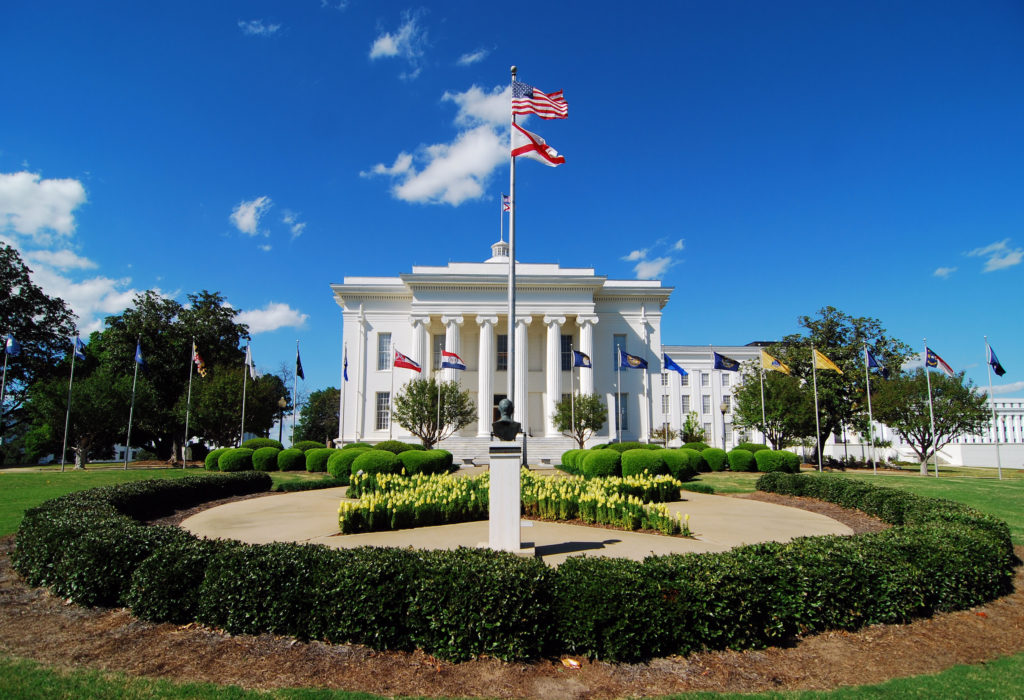
Those of us who are Baby Boomers remember the tumultuous times of the 1960’s. We lived through the Civil Rights revolution. Those of us who grew up here in the Heart of Dixie witnessed the transpiring of racial integration first hand. Most of the crusades and struggles occurred here in Alabama, especially Montgomery. A good many of the landmark Civil Rights court decisions were handed down in the Federal Court in Montgomery. The author and renderer of these epic rulings was one, Frank M. Johnson, Jr. Johnson served as Federal Judge in the Middle District of Alabama for 24 years from 1955 through 1979. Johnson’s judicial decisions brought death threats to him and his family from whites opposed to integration. He was vilified by most white Alabamians at that time and became George Wallace’s favorite whipping boy. Wallace referred to him as a “lying, scalawagging, carpetbagging integrationist.” Frank Johnson, Jr. was born in Winston County in October, 1918. Winston County attempted to stay neutral during the Civil War. It was a Republican stronghold in an overwhelmingly Democratic Alabama. In contrast to the Black Belt planters in South Alabama, the people who settled North Alabama were small farmers. The land they settled on was hilly and not as conducive to growing cotton. Rather than large plantations and slaves, the fiercely independent hill country farmers had 40 acres and a mule. Therefore, when the winds of division between North and South began to blow in the 1850’s, an obvious political difference between North and South Alabamians arose. In 1860 there were only 14 slave owners in Winston County. With the election of Abraham Lincoln, the crucial decision of secession arose. Contrary to what most present-day Alabamians think, it was not an easy unified decision that we should leave the Union. A secession convention was held in January, 1861, in Montgomery. The vote was extremely close. The delegates split 54-46 for secession. The Black Belters from South Alabama were for creating a confederacy of southern states to protect their slave ownership and way of life. The hill farmers from North Alabama preferred to not secede. These North Alabamians voted against secession from the Union at that time. Shortly after the secession convention, citizens of Winston County met at a local establishment, Looney’s Tavern. These yeoman farmers of the hills were obviously reluctant to leave the Union for the cause of the planter and his slaves. Legend has it that on July 4, 1861, the good people of Winston County decided to secede from Alabama and remain in the Union. That is why they are known in Alabama political history and folklore as, “The Free State of Winston.” That same sort of independent streak was a hallmark of the Johnson family who were some of the earliest settlers of Winston County. Judge Johnson’s father served as one of the few Republicans in the Alabama Legislature in the first half of the 20th century. Frank Johnson, Jr studied law at the University of Alabama and graduated at the top of his law school class in 1943. He then distinguished himself as a U.S. Army officer in World War II. He was wounded at Normandy and received the Purple Heart. After the war, he settled in Winston County and began practicing law in Jasper. Although the Democratic Party dominated southern politics, Johnson was a lifelong, Winston County Republican. Therefore, he led the 1952 Dwight Eisenhower campaign for President in the state. After Eisenhower became president, he rewarded Johnson with a federal judgeship. In 1955-1956, shortly after taking his seat on the bench, Johnson became involved in a formative event of the Civil Rights movement. Rosa Parks was arrested for violating a Montgomery ordinance requiring racial segregation on the city buses. In response, the African American community organized a boycott of the bus system and nominated Reverend Martin Luther King as its leader. Johnson ruled that the Montgomery ordinance violated the due process clause of the 14th Amendment. The ruling was the first of many by Johnson which eliminated racial segregation in public accommodations such as parks, libraries, bus stations, and airports during the 1950’s and 1960’s. Johnson’s decisions were legendary and groundbreaking. He became the central defender of Civil Rights in America from his Federal Bench in Montgomery. The Federal Courthouse in Montgomery is now named in his honor. Judge Johnson died in 1999. See you next week. ••• Steve Flowers is Alabama’s leading political columnist. His weekly column appears in over 60 Alabama newspapers. He served 16-years in the state legislature. Steve may be reached at www.steveflowers.us.
Steve Flowers: Roy Moore, a fundamentalist hero looking to be Senator

When the race for the open Jeff Sessions seat began, it appeared to be a Roy Moore versus Luther Strange contest. Well, folks, that’s how it ended last Tuesday. We’ve got a runoff between our Ten Commandments Judge, Roy Moore and Big Luther Strange. Roy Moore has been around Alabama politics for a while now. Alabamians know who he is and what he stands for. He has been standing up for Fundamentalist Christian values since his days as an Etowah County Judge where he displayed his initial wooden Ten Commandments plaque on the walls of his courtroom. He became so famous for his stand that he rode that notoriety to being elected Chief Justice of Alabama’s Supreme Court. Alabama is undoubtedly one of, if not the most, fundamentalist Bible-believing states in America. Most of the hard-core fundamentalist Moore followers put more credence in the Old Testament than the New Testament. Therefore, Moore’s emphasis on the Ten Commandments resonated then and still does today. Judge Roy Moore became emboldened when he became Chief Justice. In the dark of night, he had a 5,000-pound monument placed in the Supreme Court building’s rotunda. A federal court asked him to remove it. He refused and they removed him. It made him a martyr among the brethren. He ran twice for governor but failed to make the runoff each time. It appeared to be a chink in his armor. It became obvious to those of us who follow Alabama politics that voters thought highly of him as a judge but for some reason did not see him as a governor. This became clearly apparent when five years ago he disposed of two well-financed opponents in a race for his old post as Chief Justice. He won handily even though he was outspent 3-to-1. Folks in Alabama like Moore as a judge. However, it appears that they may like him as a U.S. Senator. If you think he was thought of as a martyr for being removed from the bench for standing up for his Ten Commandments monument, folks in Alabama really resented some vague judicial inquiry commission asking him to leave his seat as Chief Justice for telling probate judges in the state to stop marrying gay people. In the “Heart of Dixie” you cannot ask for a better entree into a governor’s race or senate race. Early polling showed Moore was so far out front in the governor’s race that he would have beaten the current field without a runoff. This judicial inquiry group coronated Moore and made him a folk hero. Ole George Wallace would have loved to have been dealt these cards. I can just hear him now, “Well I’ll tell you right now if two homosexual people want to get married in Alabama I’ll be the first one to stand in the courthouse door and stop ‘em. I’ll even get them a one-way bus ticket to California where they can just stay, and I’ll tell you this too, if one of those transgenders protests in front of my car they may as well get ready to get run over. And if y’all send me to Washington, I’ll ask for a seat next to the left wing socialist wackos, Bernie Sanders and ‘Pocahontas’ [Elizabeth] Warren, and I’ll ask them what bathroom they think the transgenders should go to. Then I’ll introduce a resolution requiring all transgenders be sent to California to live with those communist sympathizing, left wing movie stars and appear on the Stephen Colbert and Bill Maher shows.” Wallace would have had a field day. Wallace was a master politician; some would say a demagogue. Moore was dealt this hand. He is not the politician that George Wallace was. He actually is a true believer. He is not a demagogue. He has put his money where his mouth is. He lost his job not once but twice over his beliefs. Believe me, George Wallace would not have left his job as governor if they told him he was going to be sent back to Barbour County if he did not get out of that school house door. Folks in Alabama feel like Moore was done wrong and they set out to right that wrong. They were going to elect Moore governor next year. However, they rather have him as their Senator. As expected Moore led the field last week. Next week we will analyze the race and runoff and how his opponent, Big Luther Strange, stacks up against Moore. See you next week. ___ Steve Flowers is Alabama’s leading political columnist. His weekly column appears in over 60 Alabama newspapers. He served 16 years in the state Legislature. Steve may be reached at www.steveflowers.us.
Alabama’s long history with Senate special elections
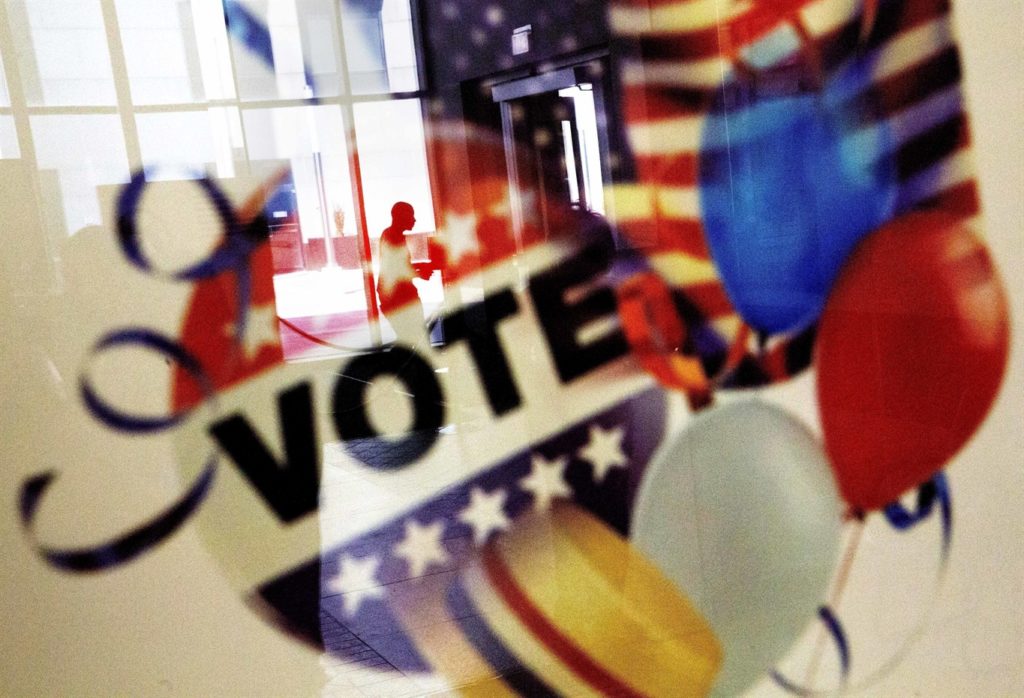
With Alabamians about to head to the polls Tuesday, Sabato’s Crystal Ball published a look back over the Yellowhammer State’s long and fascinating history with Senate special primary elections. Since the ratification of the 17th Amendment, which requires U.S. Senators to be directly elected, Alabama has had five special elections for Senate. The first of those five, held in 1914, was actually “the first to test the authority of a Governor to fill a vacancy since the direct election amendment to the Constitution was adopted” according to a Los Angeles Times article published at the time. The amendment, in part, states “that the legislature of any state may empower the executive thereof to make temporary appointments until the people fill the vacancies by election as the legislature may direct.” But the Alabama Legislature, which didn’t meet annually during that era, wasn’t scheduled to be back in session until 1915. The second race, in 1920, brought about the preferential primary voting system, which requires candidates to win a majority of the vote to secure their party’s nomination. If that doesn’t happen in the primary election, the top two finishers duke it out in a runoff election. The same system is still in place today, and if recent polls are anything to go by, the primary runoff will have to be used on the GOP side again this year. The lead up to the 1938 election saw Alabama with its first female senator, Dixie Bibb Graves, who was appointed by her husband, then-Gov. Bibb Graves, so he could avoid showing any favoritism among candidates in his party. Once the special primary election was decided, Graves rescinded his wife’s appointment and put the winner, J. Lister Hill, into the seat before holding the general election. In the fourth special election saw George Sparkman win a seat in the Senate and avoid a primary runoff with a narrow 50.1 percent victory. He went on to hold the seat for 32 years and is to this day the state’s longest-serving senator. He could have never made it to office, though, if it were not for his two primary opponents splitting the conservative vote down the middle in a contentious campaign. Alabama’s most recent Senate special election was held in 1978, and it is the most similar to the 2017 edition. After the death of Sen. Jim Allen his wife, Maryon Pittman Allen, was appointed to the seat. She was considered a favorite early on in the race but fell sharply in the polls after bad-mouthing then-Gov. George Wallace in a Washington Post interview. The move marked her as undignified and, more importantly, not conservative, though she came in second place in the primary and ultimately lost the runoff by 15 points.
Steve Flowers: How Alabama ‘friends and neighbors’ politics will play in 2018

There is a proven theory espoused by political scholars that has prevailed in southern political history for decades. The premier political scholar, Dr. V.O. Key, first illustrated this repetitious theme that has wove its way through the southern electorate. He called it “Friends and Neighbors” politics. It is not a complicated hypothesis. It simply means that southerners tend to vote for someone from their neck of the woods. It is a truism in all southern states. However, it is most pronounced in the Heart of Dixie. This friends and neighbors vote comes to light in open races for governor and U.S. senator. Folks in Alabama will consistently vote for someone from their county or surrounding counties or region of the state overwhelmingly. I tell my university southern politics students that this tendency is so pervasive and tenacious that Alabama voters will vote for someone from their neck of the woods even if they know he is a crook or a drunk. They are probably thinking, “I know ole Joe is a crook and a drunk, but by gosh he’s our drunk or crook.” The earliest and best illustration of Alabama’s “Friends and Neighbors” occurred in the 1946 governor’s race. Big Jim Folsom was born and raised in Coffee County in the wiregrass area of the state. At about age 30, he moved to Cullman, sold insurance, and worked for the WPA getting lots of folks’ jobs. In that 1946 race, he ran against the Probate Judge of Calhoun County. Big Jim beat Judge Boozer because he had two home regions. He ran overwhelmingly in both the Wiregrass and North Central Alabama. On election night in 2010, I was sitting on the set of a Montgomery television station doing election commentary and analysis. As I perused and studied the county-by-county returns, I broke into a smile that bordered on a laugh. When I saw what was happening, it was obvious that friends and neighbors’ politics still persists in Alabama. Dr. Robert Bentley was carrying Tuscaloosa and the surrounding counties of Fayette, Lamar, Pickens and Bibb so overwhelmingly that I saw that the hometown vote was going to propel him past Tim James and Bradley Byrne and into the governor’s office. He ran like a scalded dog through Tuscaloosa where he had been a popular medical doctor for 30 years and there are a good many votes in Tuscaloosa. Bentley won because of “Friends and Neighbors” politics. How will “Friends and Neighbors” play out to the advantage of the potential candidates for this year’s open U.S. senate race and next year’s open governor’s race? It is early and all the horses are not in the race yet for governor. If Kay Ivey runs, she’s been around Montgomery so long that she is thought of as a professional politician who has camped out in the Capitol City for decades. There are so few Republican votes in her native Wilcox County that she can’t reap any hometown advantage. Just the opposite for Huntsville mayor, Tommy Battle. He is well-known and liked in the Rocket City. If he is the only major candidate from the Tennessee Valley and it’s a large field, that North Alabama vote might land him in the runoff. Mobile and Baldwin counties have a long history of supporting one of their own. There are a lot of votes down there. Agriculture Commissioner, John McMillan, has been around Montgomery for a while, but he has deep roots in Baldwin County, which is now one of the most populous Republican counties in the state. What about the current ongoing open U.S. Senate race: The two front-runners, Roy Moore and Luther Strange, are thought of as statewide candidates. Although Moore will carry Etowah and Strange will carry Mountain Brook, this race illustrates and reflects more of a class ideological struggle that is playing out in the national as well as state Republican Party. It’s the evangelical Christian/Donald Trump/George Wallace voter versus the Wall Street business big mules. Moore believes he can out religious anyone. It is Moses with the Hebrew children of North Alabama versus the Philistine Mountain Brook giant. The two tribes in the Republican Party will collide with the battlefield being around the Black Warrior River. See you next week. ___ Steve Flowers is Alabama’s leading political columnist. His weekly column appears in over 60 Alabama newspapers. He served 16 years in the state Legislature. Steve may be reached at www.steveflowers.us.
Steve Flowers: Questionable political appointments nothing new
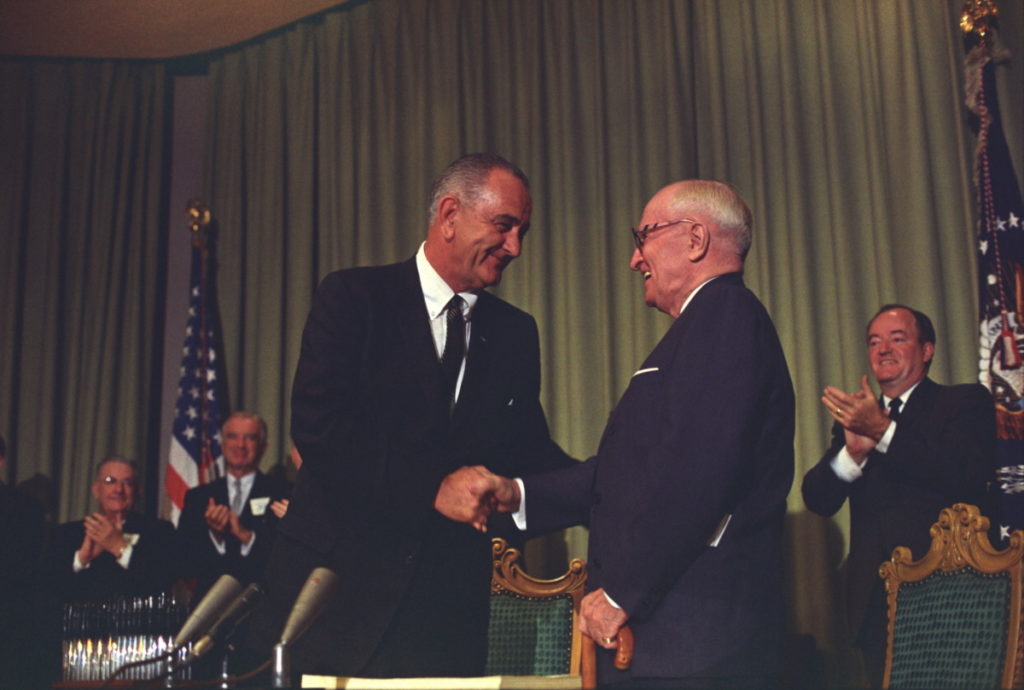
In Alabama politics, many times appointments to political offices filled by an acting governor have an adverse effect on that appointee if and when they seek election to that office for a full term. Every time George Wallace appointed someone to a political post, even in the prime of his popularity and power, they invariably lost in the next election. Well folks, ole Dr. Bentley ain’t George Wallace and his appointment of Luther Strange to the Senate seat vacated by Jeff Sessions may come back to haunt Big Luther. His appointment is even more problematic due to the appearance of collusion surrounding the appointment. The taint of the Bentley appointment hovers over Big Luther’s tall head in Washington. Lyndon Johnson had a similar cloud over his head when he arrived in the U.S. Senate in 1948. It was known that he had stolen the Texas Senate seat when he arrived. When that U.S. Senate seat came open, he made the decision to roll the dice and go for broke. Lyndon did not know that the legendary governor, Coke Stevenson, would enter the race Coke Stevenson was a legendary Texas icon. He was the epitome of a Texas gentleman and revered. He was Texas’ Horatio Alger and Davy Crockett combined. He raised himself from age 12, built a ranching empire, was Speaker of the Texas House of Representatives and a very popular Governor of Texas. Stevenson was above reproach. He would not lie, steal or cheat and Texans knew that about old Coke. On the other hand, Lyndon Johnson had already earned the reputation in Texas that he would continue to earn in Washington — he would do whatever it took to win. He was totally corrupt and ruthless without any semblance of a conscience. Johnson applied modern day politics to that era. He introduced polling and what it meant in detail. He even used a helicopter to fly from town-to-town and land on court squares to speak and shake hands, but mostly he used negative and false campaign mailings to attempt to destroy Stevenson’s stellar reputation. Stevenson was from a different era. He refused to go negative and would not reply to any negative accusations no matter how maliciously false. Johnson was able to utilize this massive media blitz because he had more campaign funds than any candidate in Texas history. He had unlimited financial backing from the giant Brown and Root Company of Texas, which is now Halliburton Corporation. They were then, as they are now, the recipients of gigantic government construction contracts. Johnson was their boy and would do their bidding as their senator so they poured money into the race like water. Johnson outspent Stevenson 10-1, but it was not enough. When the votes were counted on election night, Stevenson had won by a narrow margin. However, the election was not over; Stevenson was about to be counted out. The Rio Grande Valley along the Texas and Mexican border was known as the region where votes could be bought. Most close elections were decided in these counties, which would come in days after the original count with just the right number of votes needed to win the election. This is how Johnson won by only 87 votes in a race where over 1 million votes were cast. Johnson became known as “Landslide Lyndon” in Washington because of this 87-vote victory. It was also an allusion to how he had stolen the seat. Some people think that the nickname “Landslide Lyndon” stems from Johnson’s landslide victory over Barry Goldwater in the 1964 presidential race, but it was actually from the 1948 Texas Senate race. A legendary tale that is attributed to Johnson in this infamous race claims that in the days following the election, while garnering enough votes for victory, Johnson and the political bosses of the Valley counties were going through cemeteries and taking names of dead Mexicans off the tombstones to register voters. They could not decipher one of the names and asked Lyndon what to do, Johnson quickly replied, “Give him a name, he’s got as much right to vote as the rest of them in this cemetery.” See you next week ••• Steve Flowers is Alabama’s leading political columnist. His weekly column appears in over 60 Alabama newspapers. He served 16 years in the state Legislature. Steve may be reached at www.steveflowers.us.
On 45th anniversary of shooting, Jim Zeigler asks Kay Ivy to return Wallace’s portraits to Rotunda
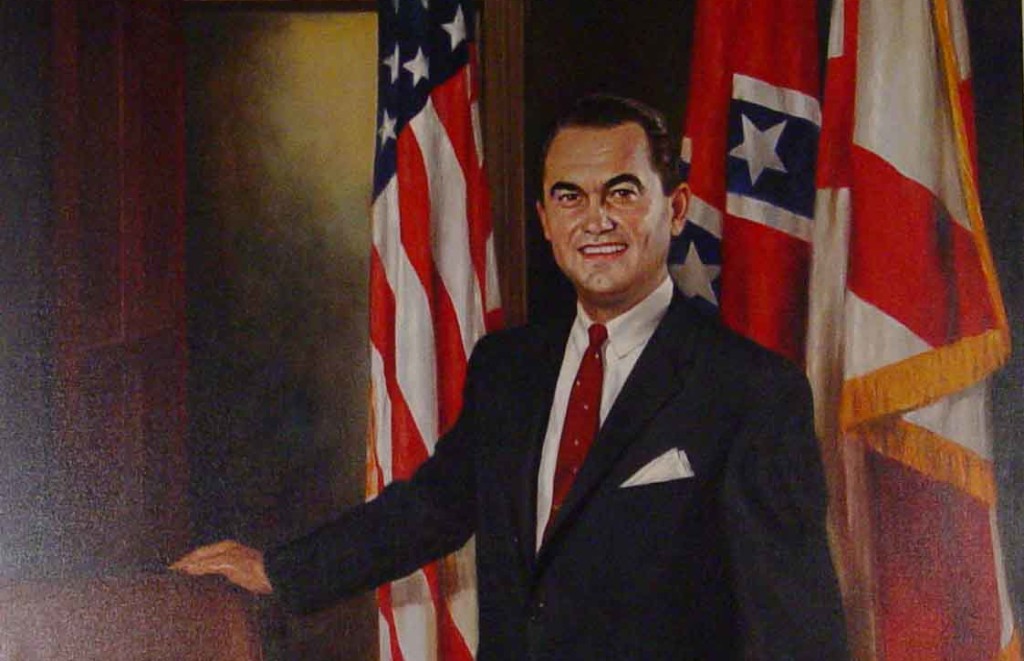
On this 45th anniversary of the shooting of former Alabama Gov. George Wallace, State Auditor Jim Zeigler is asking that the portraits of former-Governors George and Lurleen Wallace be returned to the state capitol rotunda. Zeigler sent a written request Monday to Gov. Kay Ivey asking her to return the Wallace’s portraits to their historic location. Both Wallace portraits were removed from the rotunda in January 2015 by then-Gov. Robert Bentley in a move the auditor calls a move to re-write Alabama’s history. “The Alabama Legislature passed joint resolutions in 1983 mandating that the Wallace portraits remain in the rotunda in perpetuity. It was clearly the legislative intent that this be done,” Zeigler wrote in his request to Ivy. “Your action in restoring the Wallace portraits to their rightful place would be a bold statement that we in Alabama respect our heritage and reject historical revision.” Below is the full text of Zeigler’s request: I hereby request that you return the portraits of Governors George and Lurleen Wallace to their legal and historical place in the capitol rotunda. The Alabama Legislature passed joint resolutions in 1983 mandating that the Wallace portraits remain in the rotunda in perpetuity. It was clearly the legislative intent that this be done. The Wallace portraits had been displayed in the rotunda until January 2015, when they were suddenly removed by the Bentley administration. Your action in restoring the Wallace portraits to their rightful place would be a bold statement that we in Alabama respect our heritage and reject historical revision. When I attempted to get the previous administration to return the Wallace portraits to the rotunda, officials of that administration reflexively thought up excuses not to do so. Each one of those excuses was flawed. If you were to hear reasons not to return the Wallace portraits, I would request the opportunity to meet with you to address those excuses. On May 15, 2017, we observe the 45th anniversary of the attempted assassination of Gov. George Wallace. What a wonderful tribute it would be to Alabama’s only four-time governor and presidential candidate to have you right this wrong and restore the Wallace portraits to their historical and legal place. Thank you for your consideration and action.
Steve Flowers: Luther Strange feeling heat over ‘brazen’ Senate appointment
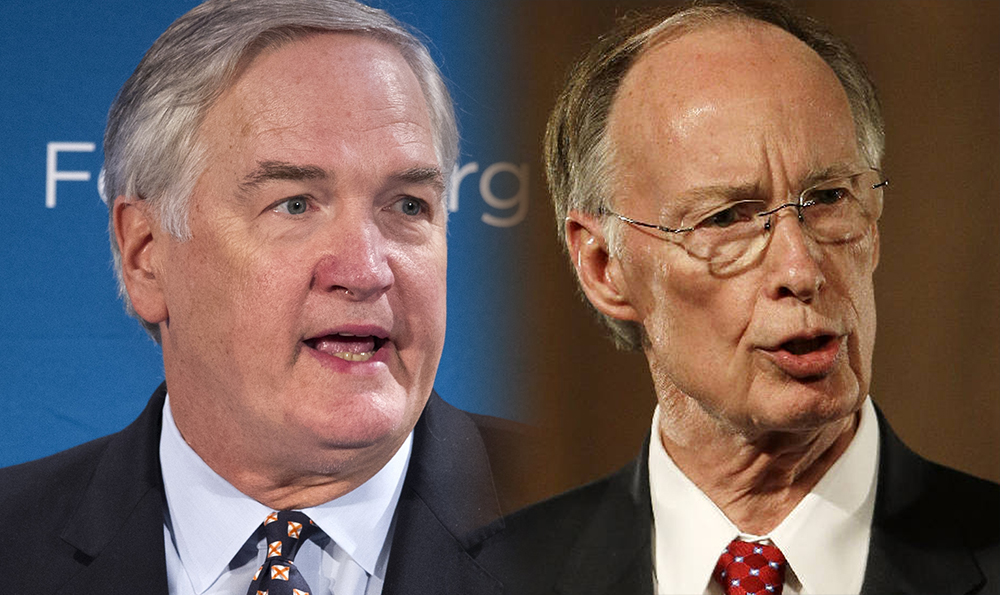
Lots of folks are still mad about our lame duck governor Robert Bentley naming Attorney General Luther Strange to Jeff Sessions Senate seat. If the sitting attorney general of a state openly states that he is investigating the governor for misfeasance and then that governor appoints that attorney general to the Senate seat it looks funny. It gives new meaning to the word collusion. This brazen move has incensed legislators who have heard from their constituents back home. It has especially upset members of the House Judiciary Committee. They were asked to cease the impeachment proceedings last year in deference to Strange’s request to lead an investigation of the governor’s shenanigans. Needless to say, they have reinstated their impeachment proceedings against old Bentley with renewed vigor. Several legislators have taken issue with the governor’s calling for the Senate seat election in 2018, rather than immediately. The constitution says the election should be held forthwith. That is open to interpretation. The more prudent path is 2018, since there are elections anyway. That is traditionally the way it has been done in the state in the past. However, most seats in bygone days were vacated by the death of one of our senators and the governor usually appointed the deceased senator’s widow for the remaining year or so on the term. She was considered a caretaker to the seat. There has been so much grief and acrimony to Strange’s appointment that he may be a caretaker. I have never before seen a governor treated with such disdain and irreverence by a legislature as ol’ Bentley. They probably will not technically impeach the ol’ fellow. He only has about 20 months left in his tenure and he is essentially impeached from power anyway. Most of them look at him as a buffoon or clown. He has about as much relevance in the legislative process as one of the former goats that used to graze on Goat Hill. The ultimate fallout from Bentley’s actions and unpopularity may accrue to Luther Strange in his election race in 14 months. Winning the GOP primary in this Senate race is tantamount to election in Alabama. Therefore, the race is in June of next year. Big Luther stands a good 6 feet 9 inches. His height is daunting. He was actually a college basketball player at Tulane. Luther spent the first 20 years of his career as a corporate lobbyist in Washington. Seeing the power and deference of being a U.S. Senator made an impression. He came home to run for a secondary constitutional office and get ready to run for a Senate seat vacated by either of his friends, Richard Shelby or Jeff Sessions. He chose the right stepping stone job, Attorney General. Big Luther is basically a shy and reserved fellow. He is not a natural politician. He was on the right course when he initially said that he would not seek nor accept Bentley’s appointment and that he was running for the post independent of the discredited governor’s appointment. He changed his mind and met with Bentley and took the appointment. His trusted advisors convinced him that folks have short memories and that over the next year as a sitting U.S. Senator he can raise so much Washington campaign cash that he can outspend his opposition to such an extent that it will wash away the taint of the Bentley appointment. He may be right. That may be a good bet. However, folks may be smarter and more cognizant of bold brazen backroom deals than some think. Just ask Bill Baxley how that worked out in 1986 when some Democratic Party leaders got behind closed doors and selected Baxley to be the Democratic nominee over Charlie Graddick who got the most votes. The people were so incensed they elected an unknown Republican named Guy Hunt as Governor. However, there is the pragmatic side of the equation. During that 1986 debacle Bill Baxley, who was lieutenant governor, had become close with the King of Alabama politics, Gov. George Wallace. Wallace was in his last term as governor and Baxley had sensed a backlash might occur with such an audacious brazen move by his Democratic Party buddies, so he went to Wallace for his advice. Ole Wallace took a puff on his cigar and looked at Baxley wryly and said, “Bill you know what they call a governor who gets to be governor by a backroom deal?” Baxley asked “What?” Wallace said, “They call him Governor.” See you next week. ___ Steve Flowers is Alabama’s leading political columnist. His weekly column appears in over 60 Alabama newspapers. He served 16 years in the state Legislature. Steve may be reached at www.steveflowers.us.


